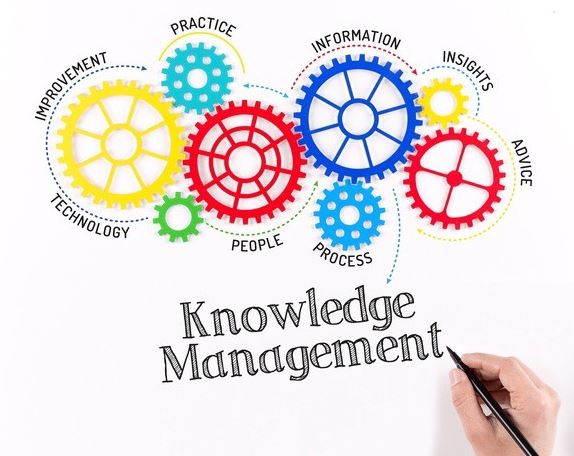An Investigation into the Impact and Influence of Knowledge Management in the UK Construction Industry (2013)
Knowledge Management in Construction Organisations Dissertation – One of the main challenges facing the construction industry is to continually find new ways of delivering construction projects effectively. Reports such as the Egan and Latham Report, Rethinking Construction in the UK etc., are all written as guidelines to help construction organizations and project teams focus more on the client and carry-out projects in line or parallel to the client’s business strategy to ultimately improve their services and project delivery. This continuous search for improvement and changes to facilitate bench-marking against best practices has called for more effective and dynamic approaches to the way things are done in the construction industry.
These approaches include developing alternative procurement routes to ultimately improve communications between participants in the construction process and the adoption of an extensive variety of concepts, tools and techniques to develop collaboration and to enhance efficiency and quality. Other approaches include using IT (Information Technology) solutions to integrate the construction process with technology by electronic sharing of data and information in the design phase and the improvement of better components, materials and construction methods, including standardization and pre-assembly.
However, new markets demand a change in the way organisations operate and demand new concepts, tools and technology to improve the efficiency and quality of processes and products of construction firms, and researchers and practitioners in the KM field believe and continuously underline that KM is one of the concepts needed to meet these demands. They argue that it has become apparent that organisations need to manage their knowledge assets effectively and to continuously identify where knowledge resides in their organization, so that they can then organize it for employee use in their work processes.
The aim of the dissertation is to explore, investigate and analyse whether the knowledge management (KM) concept enables construction organisations to deliver more efficient services and products, improved performance and enables them achieve their organisational objectives. The objectives of the study are:
- To appraise the academic and practice rudiments of knowledge management
- To outline the implications of the KM concept on people, processes and products in construction organisations
- To identify the main benefits of knowledge management, and assess whether the current perception and practice of KM in construction organisations allow them to have full access to these benefits and subsequent organisational benefits
- To analyse through data collection in sample construction companies, the influence of KM in construction organisations and investigate its impact in delivering more efficient services and products, continuous improvements in processes and in gaining organisational benefits
- To evaluate whether KM adds value to the construction industry as a whole
- 25,000 words – 92 pages in length
- Excellent use of literature
- Good analysis of subject area
- Well written throughout
- Includes survey questionnaire
- Ideal for construction management students
1 – Introduction
Background and Research Rational
Research Aims and Objectives
Research Scope
Dissertation Structure
2 – Literature Review Knowledge Management
What Is Knowledge?
Definition
Data, Information and Knowledge
Types of Knowledge
What Is Knowledge Management (KM)?
History of KM
Definition of KM
Perceptions of KM
KM Drivers
KM Aims, Objectives and Benefits
Strategizing KM
Implementing an Effective KM Strategy
3 – Literature Review Construction
Knowledge, Construction and the Economy
KM and the Construction Practice
Knowledge Creating Factors in Construction
Capturing and Creating Construction Knowledge
Sharing and Transferring Construction Knowledge
KM Critical Success Factors (CFS’s) / KM Pillars
KM Tools and Techniques in Construction
Capturing Tools
Creating Tools and Techniques
Sharing Tools
KM Performance Measurements
KM Measurement Tools
4 – Research Methodology
Research Design
Methodology and Justification
Quantitative Research Method
Qualitative Research Method
The Research Strategy
Data Collection Methods
Data Collection Procedure
Research Population
Sample Size
The Research Instrument
Question Types
5 – Case Studies Data Analysis
Miller Group
Company Profile
KM in Miller Group
KM Aims and Objectives in Miller Group
Managing Knowledge Aspects at Miller Group
Impact of KM in Miller Group
Data Analysis
Laing O’Rourke Plc.
Company Profile
KM in Laing O’Rourke
KM Aims and Objectives at Laing O’Rourke
Managing Knowledge Aspects in Laing O’Rourke
KM Impact in Laing O’Rourke
Data Analysis
Davis Langdon
Company Profile
KM in Davis Langdon
KM Aims and Objectives in Davis Langdon
Managing Knowledge Aspects at Davis Langdon
Impact of KM in Davis Langdon Construction
Data Analysis
6 – Findings and Discussions
Data Analysis
KM Awareness and Perception
KM Strategy
KM Resources and Motivation
Leadership and Commitment
KM Tools and Techniques
KM Practice
KM Barriers
Assessing KM for Business Improvement
7 – Conclusions and Recommendations
Research Summary
Recommendations
Limitations
Conclusions
Appendix
Survey Questionnaire

